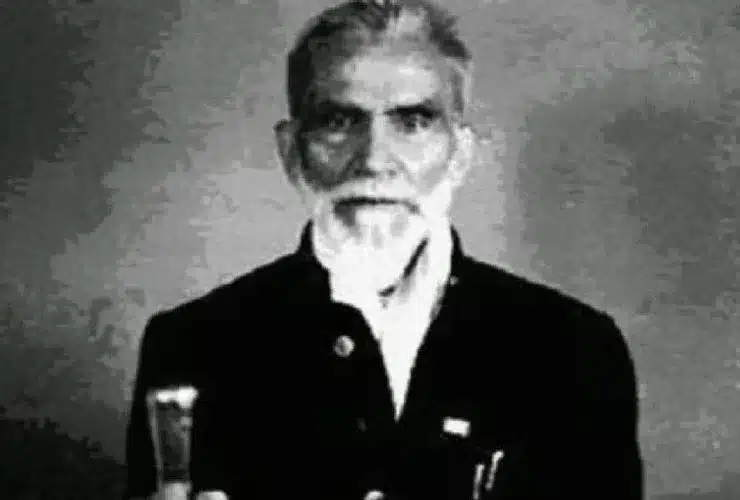Mahendra Pratap Singh, an Indian freedom fighter

Mahendra Pratap Singh was an Indian freedom fighter, writer, and journalist. He was nominated for the Novel Peace Prize.
EARLY LIFE
He was born on 1 December 1886, Hathras, Uttar Pradesh. At the age of 3, he was adopted by Raja Harnarayan Singh. In 1895, he attends his schooling at the Government High School in Aligarh, but soon transfer to the Muhammadan Anglo-Oriental Collegiate School, later became Aligarh Muslim University. He completed his graduation from AMU.
In 1906, he went to Kolkata to attend the Congress session, and met several leaders involved in the Swadeshi movement. He was influenced by the speeches of Dadabhai Naoroji, Bal Gangadhar Tilak, Maharaja Baroda, and Bipin Chandra Pal, helping to make him a patriot who turned Swadeshi. He started the movement to burn the foreign-made clothes in his state.
In 1913, Mahendra Pratap Singh took part in Gandhi’s campaign in South Africa. In 1915, he established the first “Provisional Government of India’’ at Kabul in Afganishtan as a government-in-exil, of Free Hindustan, and became the president of the Government.
Due to his revolutionary ideas, he had a good relationship with Lenin, who invited him to Russia after its liberation and welcomed him. By this time, the British had noticed his activities, and the British Government of India put a reward on him, attached his entire estate, and declared him a fugitive, causing him to flee to Japan in 1925.
PM lays the foundation stone of Raja Mahendra Pratap Singh State University in Aligarh
In 1929, he published the ‘World Federation Monthly Magazine‘ in Japan. During the Second World War he stayed at Tokyo in Japan and continued his movement from ‘World Federation Centre’ to free India from British rule.
In 1946, he returned to India, and he met Mahatma Gandhi at his Wardha Ashram.
In 1957, he entered in politics, He was elected as an independent candidate in the 1957 Lok Sabha Elections from Mathura Lok Sabha constituency defeating Bhartiya Jana Sangh and became a member of the second Lok Sabha in 1957–1962.
He died on 29 April 1979.
NOMINATION
In 1932, He was nominated for the Nobel Peace Prize by a Swedish author-politician.
Observer Voice is the one stop site for National, International news, Sports, Editor’s Choice, Art/culture contents, Quotes and much more. We also cover historical contents. Historical contents includes World History, Indian History, and what happened today. The website also covers Entertainment across the India and World.

